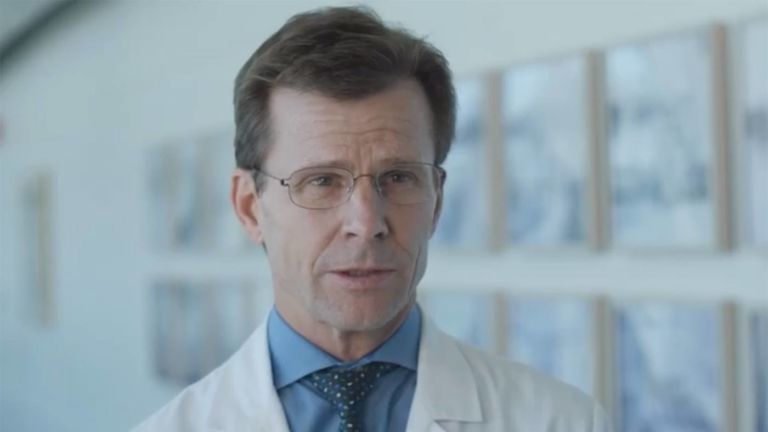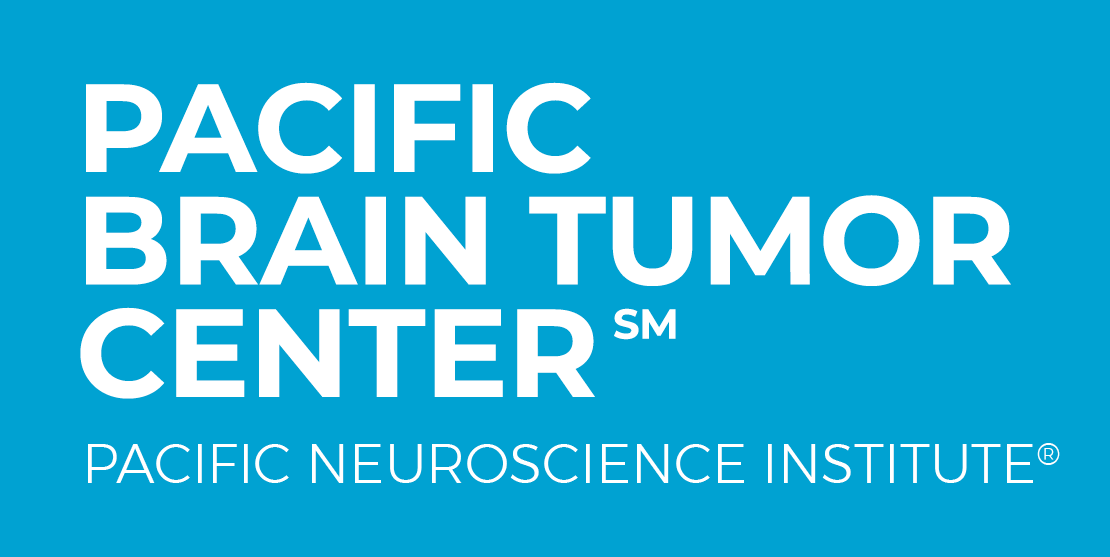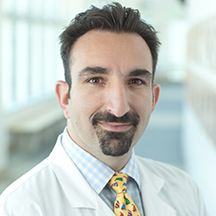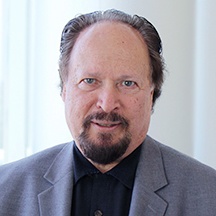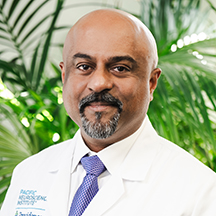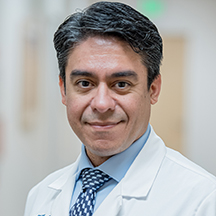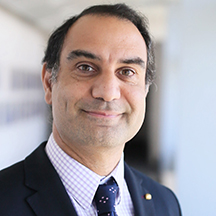Knowing Your Colloid Cyst Care is in the Right Hands
Superior Treatment for Patients with Colloid Cyst
As one of the most comprehensive brain tumor programs in the United States, the Pacific Brain Tumor Center at Pacific Neuroscience Institute (PNI) offers world-class expert care. Ranked in the top 1% of neurology and neurosurgery programs in the nation, our center’s compassionate multidisciplinary specialists provide advanced, personalized treatment while focusing on our patients’ quality of life.
Affiliated with award-winning Providence hospitals Saint John’s Health Center and Little Company of Mary, PNI neurosurgeons lead the way in advancing safer, more effective keyhole and minimally invasive endoscopic brain tumor removal approaches.
If you, a family member, or friend have a new diagnosis, require a second opinion, or have a brain tumor or skull base tumor recurrence, our expert physicians can help you understand your condition and determine an optimal treatment plan.
Think Brain Tumor. Think PNI.
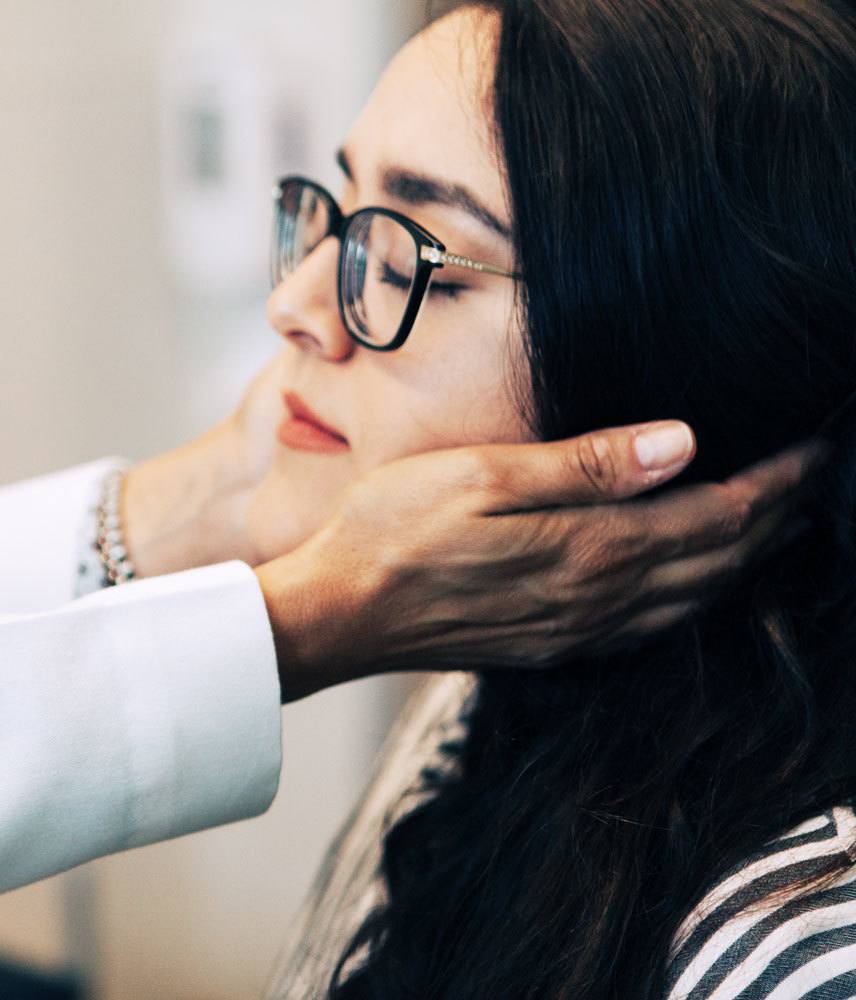
Contact Us
For information about brain tumor treatment please complete the form below. We will respond to you within 12-24 hours. To speak with someone right away contact us at 213-855-2368.
Symptoms
As these slow growing cysts enlarge, they start to obstruct the normal flow of CSF through the Foramina of Munro which are the narrow channels through which CSF flows from the two lateral ventricles into the 3rd ventricle. This obstruction can result in increased pressure in the head leading to:
- Headaches
- Vision disturbance
- Double vision
- Memory and concentration difficulties
- In some advanced cases, altered states of consciousness and even coma.
Diagnosis
What do I do if I have these symptoms?
Colloid cysts are typically diagnosed by magnetic resonance imaging (MRI) or computer tomography (CT) scans of the brain. Specific high resolution MRI sequences can further characterize colloid cysts, how they impact surrounding normal anatomical structures and CSF flow patterns from the lateral into the 3rd ventricle.
Treatments
For symptomatic colloid cysts, the best treatment is surgical removal. Depending on the exact anatomical location of the colloid cyst and the size of the lateral ventricles, surgical options include endoscopic resection of the colloid cyst or use of a brain port for a minimally invasive transcranial resection of the colloid cyst. In rare cases, ventricular drains (aka VP shunts) may be necessary after surgery to divert CSF around the blocked Foramina of Munro.
Our Physicians
Click on our award-winning physicians below to learn more about them:
Patient Experience
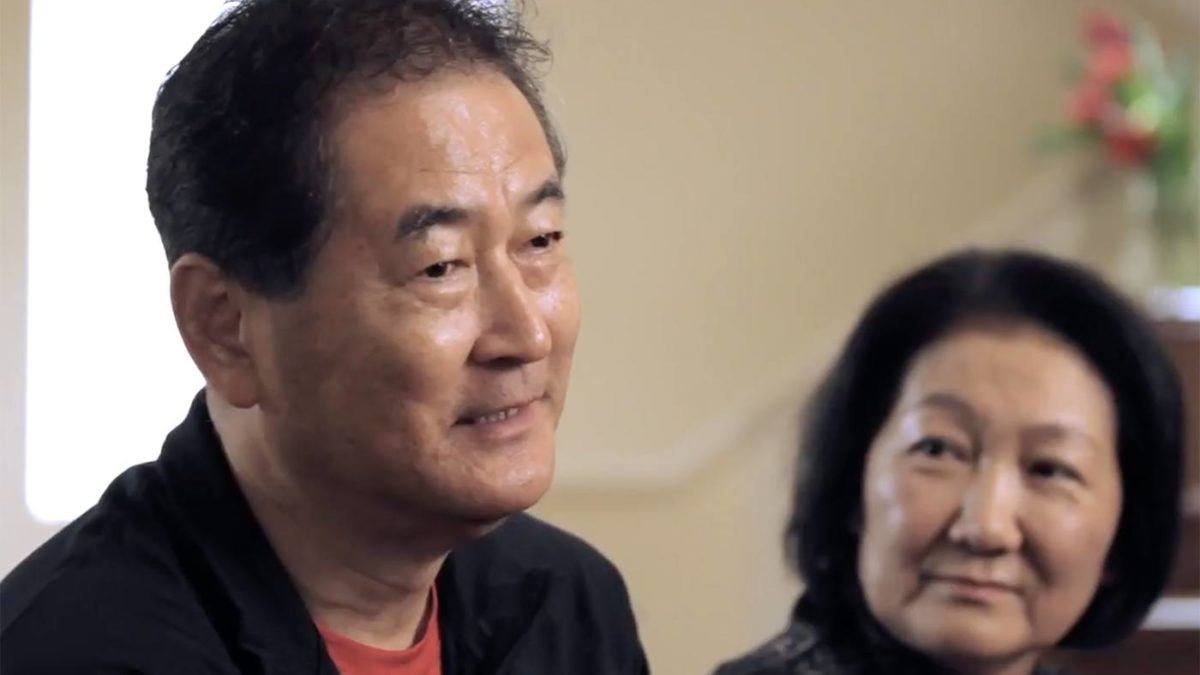 Akiko’s Story – CNS Lymphoma
Experience Akiko’s recovery from CNS Lymphoma.
Akiko’s Story – CNS Lymphoma
Experience Akiko’s recovery from CNS Lymphoma.
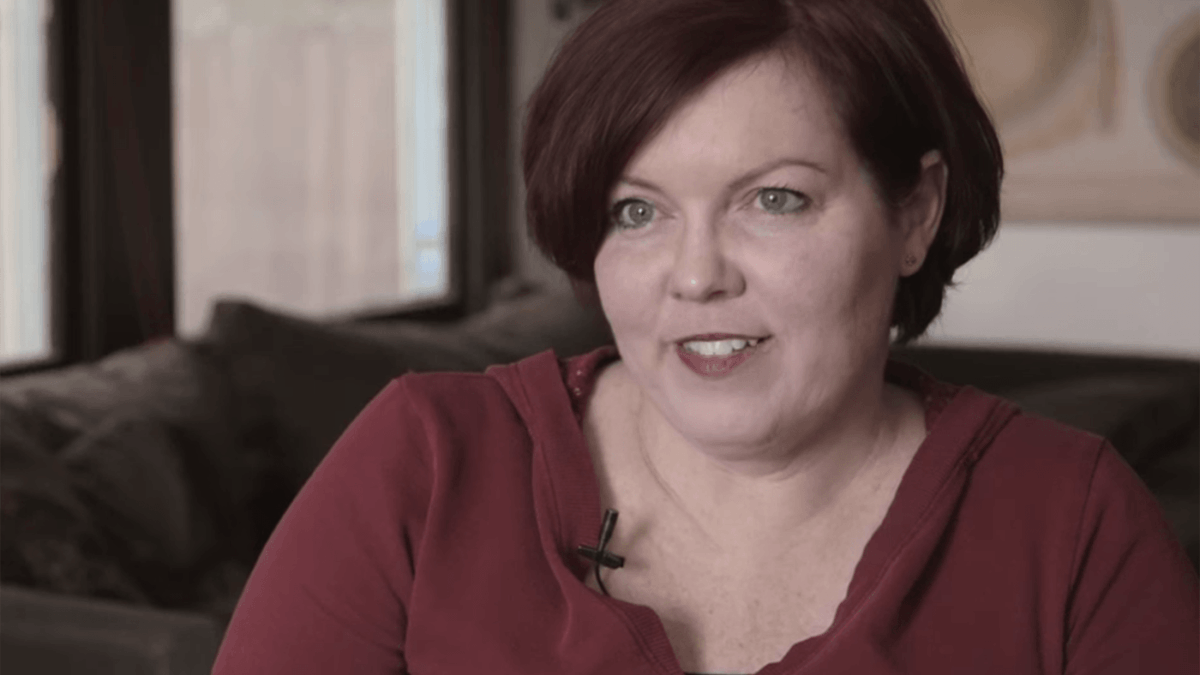 Justine’s Story – metastatic melanoma
Experience an actual account of metastatic melanoma.
Justine’s Story – metastatic melanoma
Experience an actual account of metastatic melanoma.
 Chris’ Story- Meningioma Brain Tumor
Experience and actual account of meningioma.
Chris’ Story- Meningioma Brain Tumor
Experience and actual account of meningioma.
 The Pacific Brain Tumor Center
The Pacific Brain Tumor Center
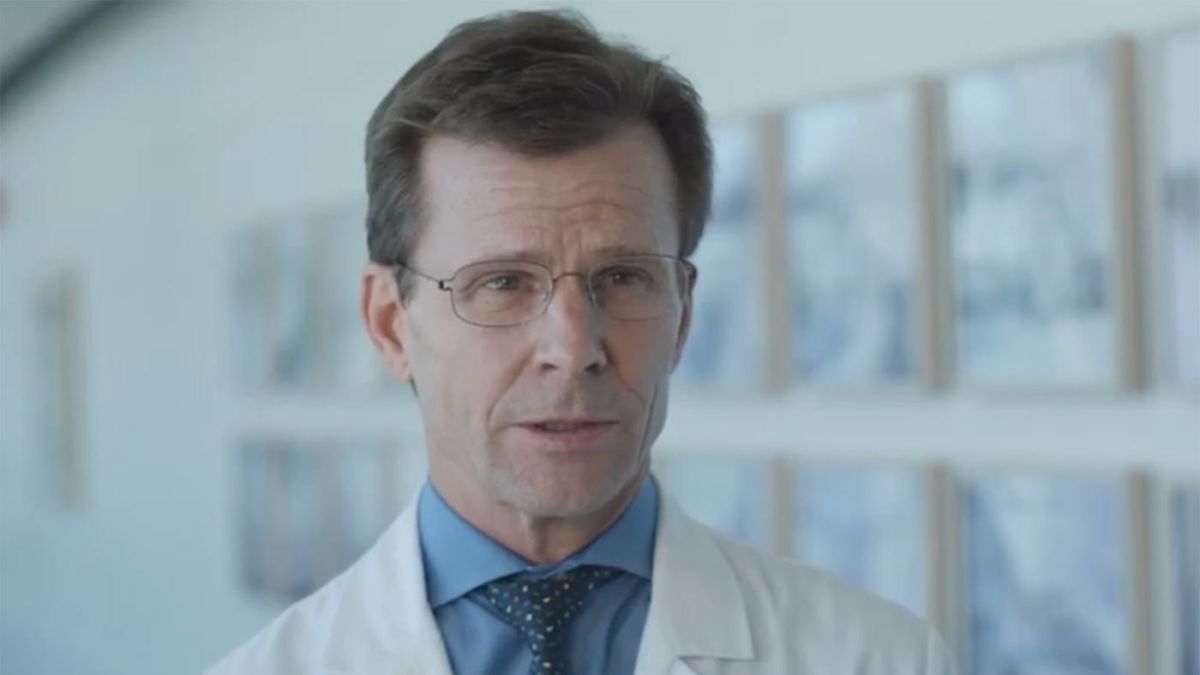 Meet Dr. Daniel F. Kelly
Meet Dr. Daniel F. Kelly
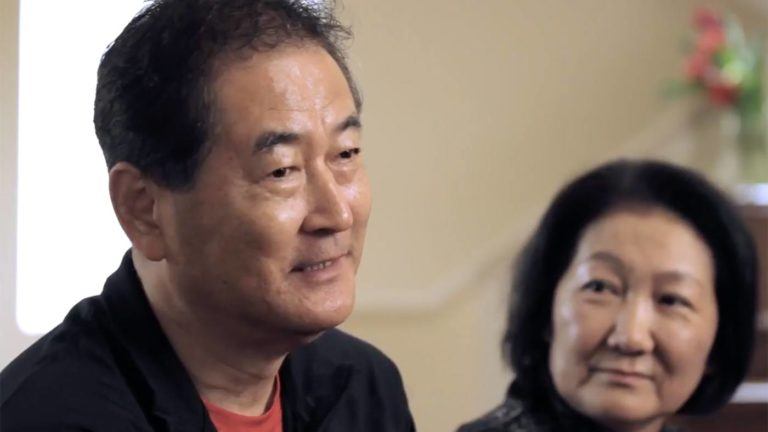
Akiko’s Story | CNS Lymphoma
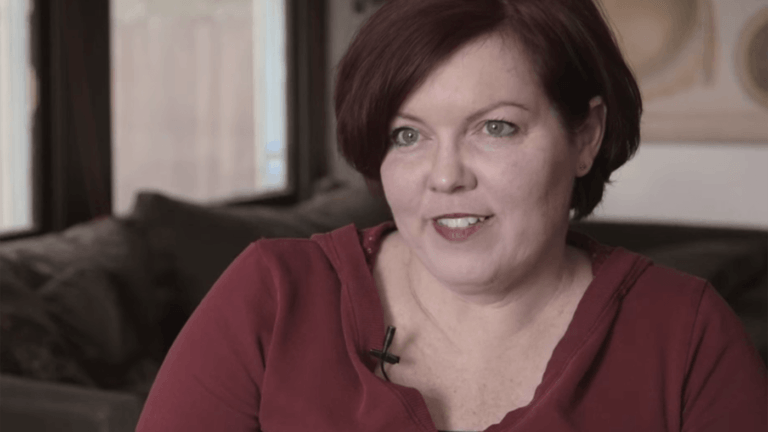
Justine’s Story | Metastatic Melanoma
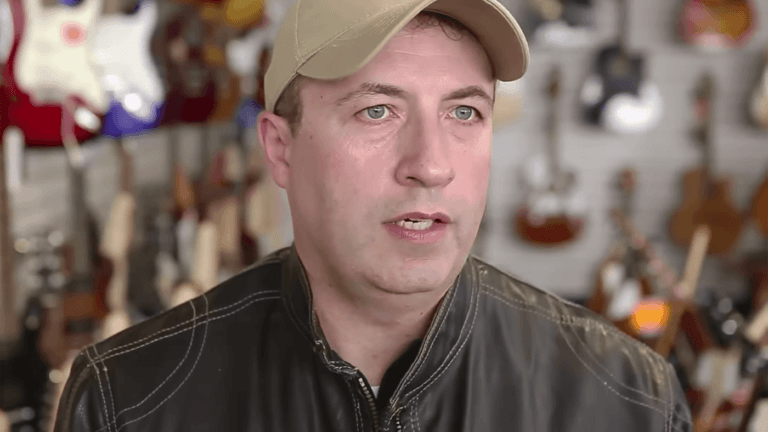
Chris’ Story | Meningioma

The Pacific Brain Tumor Center
